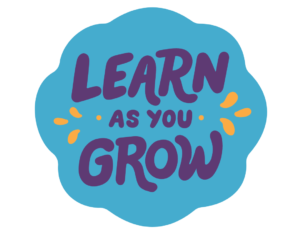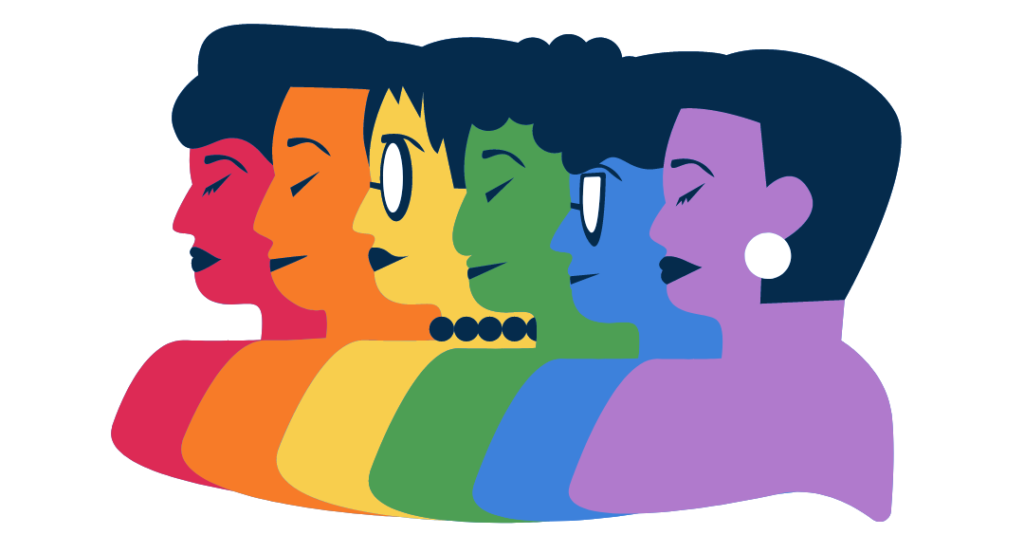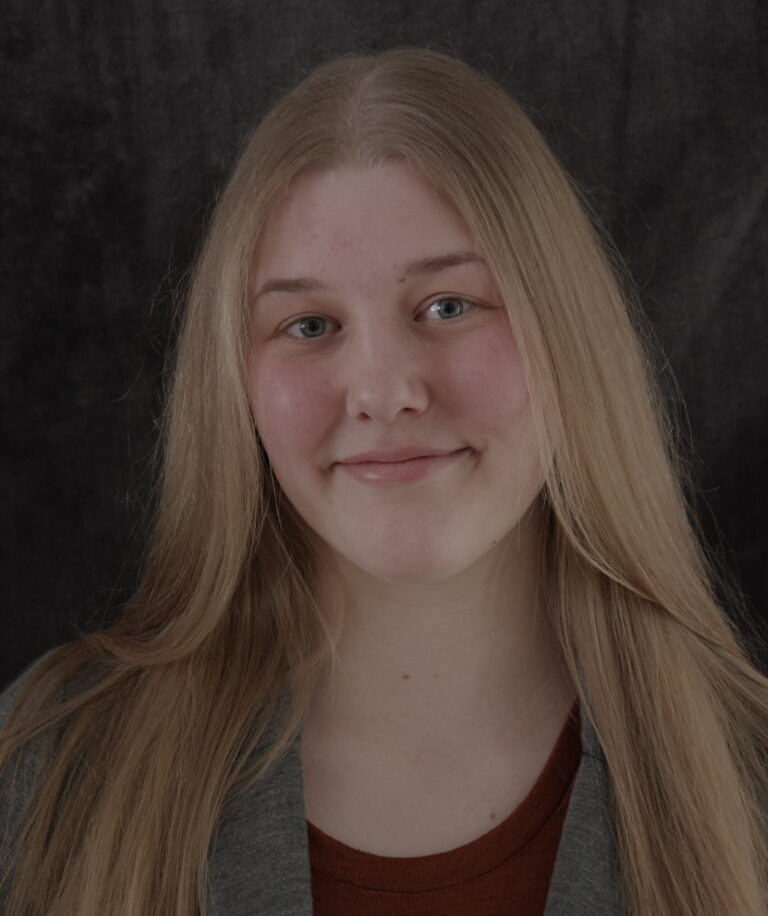Asexuality is arguably the least known 2SLGBTQ+ identity. Whenever I come out, I’m generally met with a myriad of confusion and questions. While understanding who I am and how I identify was hard, flourishing into being openly proud has made me so much happier.
In junior high, while 13 to 16, my peers and I were going through a rough time experiencing puberty. My female friends would lust over the prospects of sexual intimacy with men. As we moved to high school, their fondness grew, and most even started to get excited about babies. I never shared this lustful sentiment. I couldn’t fathom why or how they were seeing others in a sexual way. Not fitting in bothered me, so I would play along but secretly dreaded how far I may have to take my lies.
As we moved to high school, no one ever questioned me for never being in a relationship. I started to feel more comfortable doing my own thing by surrounding myself with people who would not judge or question me.
You can choose your own tribe.
As someone who has romantic attraction, I would have crushes or obsessions but never really understood them since they did not have a sexual component. Media and examples of relationships truly led me to believe that I could never have anything worthwhileworth-while, since no one demonstrated that type of a relationship to me. One of my romantic interests in high school told me they were thinking of identifying as asexual. The term was brought up to me a couple of years earlier, but the idea of needing to stray away from norms within my friends and the couples around me scared me too much. Once I recognized that someone I liked could be asexual and none of the harmful stereotypes were true, I immersed myself in research.

I tried to read forums, joined Discords, found articles, memorized research papers, and became consumed with figuring out how I, as an asexual person, fit into a world that was not the same as mine.
While 1% can sound small, it represents 70 MILLION people worldwide who feel the same way as we do! So, if you ever think you are alone, it’s simply not true. With a lack of awareness, many people can fit under the asexual umbrella, too!
An intimate relationship is defined as “emotional or physical closeness.” So this statistic proves asexual people can have close and fulfilling relationships regardless of stereotypes.
“Asexuals reported more everyday discrimination and stigma than non-asexual LGB people”
Unfortunately, due to a lack of awareness and education, asexual people across multiple studies experience higher rates of discrimination and mental health struggles than other groups. Finding yourself is never easy, and others being unsupportive does not help. Finding and looking for a community can make all the difference in discovery and acceptance, and I urge you to take the step of finding your tribe!
A study published by Shelby Wren in 2020 found that “30 to 50 percent of respondents who had disclosed their asexuality in a medical setting said a therapist or doctor had attributed their asexuality to a health condition.”
The discourse surrounding asexuality and health care is notably around diagnoses for HSSD (Hypoactive Sexual Desire Disorder) or medication treating sexual desire. The important thing to note is that research has proven that a lack of sexual attraction is different from a lack of sexual desire. Asexuality encompasses feelings around sexual attraction, not desire. Unfortunately, the lack of education and awareness of these differences can harm asexuals and healthcare professionals from making appropriate recommendations. Furthermore, someone’s lack of sexual attraction may be misinterpreted or misrepresented as desire, and individuals can have these health concerns wrongfully attributed to them.
Embracing your asexuality and being proud of who you are is an empowering journey, but it’s not without its challenges. As an asexual person in Canada, you may come across misunderstandings, discrimination, and ignorance about your identity.
However, staying strong, proud, and resilient can help you thrive. Here are some tips to help you navigate through these challenges:
Take the time to learn more about asexuality and all the identities under its umbrella. The more you understand yourself and your identity, the more confident you’ll embrace it proudly.

Building a supportive community can make a world of difference in your journey as an asexual. Seek out local 2SLGBTQ+ groups or online communities specifically for asexual people. Connecting with others who share similar experiences can provide validation, support, and a sense of belonging. Remember, your chosen family can be just as important, if not more so, than your biological one. There are many location-based asexual and 2SLGBTQ+ groups on Discord, Facebook, and in-person that you can join, too!
And SO many more!
In a society that often prioritizes sexual attraction and relationships, do your best to stand firm in your identity. Do not let societal pressures or expectations dictate how you should feel or who you should be. Your asexuality is a valid and integral part of who you are, and you have every right to embrace it proudly. Surround yourself with people who accept and respect you for who you are, regardless of your sexual orientation.

Asexuality is still widely misunderstood and misrepresented, even within the 2SLGBTQ+ community. Take opportunities to educate others about asexuality, challenge stereotypes, and advocate for greater visibility and awareness. Whether through conversations with friends and family, participating in pride events, or sharing resources on social media, every effort contributes to creating a more inclusive and accepting society.
Taking care of your mental, emotional, and physical well-being is crucial, especially when faced with discrimination or ignorance. Remember to prioritize self-care activities that bring you joy, whether it’s indulging in hobbies, spending time with loved ones, or simply taking a moment to breathe and relax. Surround yourself with positivity and seek professional support if needed.
Your asexuality is a unique and beautiful aspect of your identity. Embrace it, celebrate it, and take pride in who you are. Remember that diversity improves our communities and contributes to a more vibrant and inclusive society. By being true to yourself and living authentically, you inspire others to do the same.

Embracing your asexuality in a world where heterosexuality is a norm can be challenging, but it is worthwhile. By educating ourselves, seeking supportive communities, and standing firm, we can take pride in our identity and build resilience. It is important to promote visibility, prioritize self-care, and celebrate our diverse experiences to navigate discrimination and ignorance. As we continue on this path, we must remind ourselves and stand firm that our identities are valid and deserve respect. So, stand tall, stay resilient, and know you are not alone.

Jasmine (she/her) is an asexual content creator based in Alberta. Since 2019, she has massed a TikTok following with content educating viewers on what it means to be asexual identifying today. With a focus on marketing, she is motivated to dispel misconceptions, promote positivity, and make a difference for the entire 2SLGBTQ+ community.

